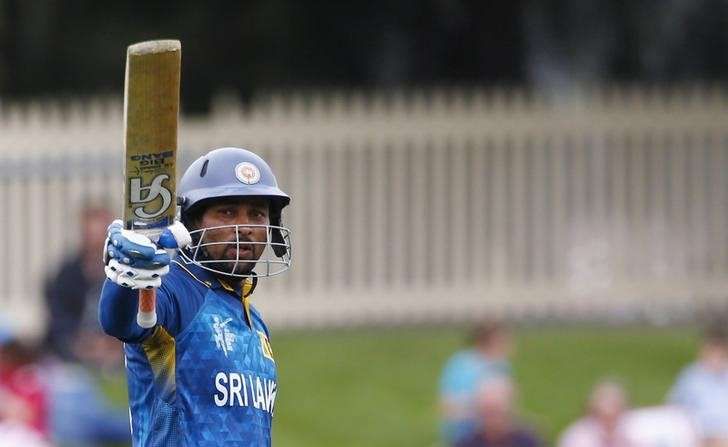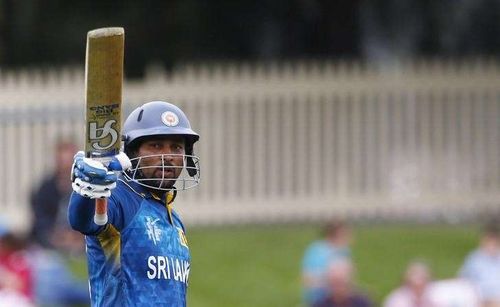
Dilshan heads into the sunset content with achievements

COLOMBO (Reuters) - Moving up to open the innings for Sri Lanka changed his career but it was a decision he should have taken two years earlier, Tillakaratne Dilshan said after retiring from international cricket following Friday's Twenty20 loss against Australia.
Inventor of the famous "Dilscoop" ramp shot, Dilshan played the last of his 87 tests in 2013 before quitting the longer format with 5,492 runs and 39 wickets to his name.
The 39-year-old signed off from the shorter formats with over 10,000 runs and 22 centuries in 330 one-day internationals and 80 T20 matches. He is one of only six men to have scored a hundred in all three formats of the game.
"I think I should have taken the decision to move up to open earlier," Dilshan said before Friday's match.
"I made that decision in 2009 but I should have made that a couple of years (before) to (break) more records," he added.
"I realised that I can do more for the side as an opener. From 2009 to 2016 I scored 21 hundreds in one-dayers. That was a position I really enjoyed.
"That change in position changed my career and I think I helped the side there a lot as well."
Dilshan, who made his one-day debut against Zimbabwe in 1999, was also a wily off-spinner and one of the most agile Sri Lankan fielders even at the age of 39.
He took over 100 wickets in ODIs and made life difficult with the ball for his opponents even in his last match. He gave away eight runs and claimed two wickets in two overs in his last spell in international cricket.
"I'm really happy with what I've done for 17 years for my country and my team," he said. "I didn't look to break records. A few days back, I went back and looked at what I had done for 17 years.
"I have broken a lot of records, I'm really happy. I never played for the record, I always played for the team and country," he added.
"Now is time to enjoy myself with the kids and the family, they have sacrificed a lot for the last 15-20 years."
(Writing by Sudipto Ganguly in Mumbai; editing by Ed Osmond)